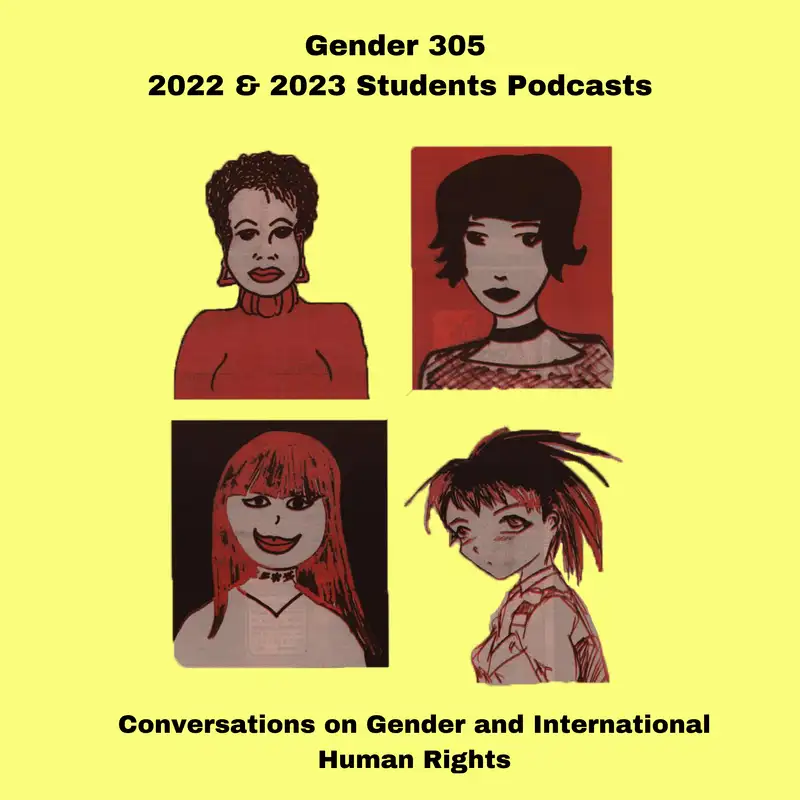AI & Gender Discrimination
Technology is more prevalent today than it has ever been (Heo et al., 2021). With the
current COVID-19 pandemic, technology itself has progressed at such an extensive rate around
schools, work, and almost all methods of communications transitioning to be online (Heo et al.,
2021). Because of this technological reformation into our everyday lives, it is easy to assume
that everyone has had experience with, and (at least) some limited knowledge of, computers.
Using this assumption, we first connect our larger idea of Artificial Intelligence to the more
simplistic everyday use of technology, such as one’s smartphone or computer. We also offer a
short definition of machine learning while, additionally, expressing the various means through
which complex algorithms can be adapted to process and analyze human data beyond that
which we may have seen on our smartphones.
Due to the pandemic restrictions, University students have become increasingly familiar with chat rooms, take for example, one of the most
Due to the pandemic restrictions, University students have become increasingly familiar with chat rooms, take for example, one of the most
popular apps, Discord. Along with many other social media platforms, Discord has become
highly valued by university students as a way to connect with other students in the same
university, faculty, and classes, even when not physically together. However, when discussing
technology, it is easy to go down a dark path with a seemingly unlimited amount of
misinformation. Therefore, we emphasize that it is highly advised to take the information that
we are providing and complement such sources with your own research. Overall, it is vital to
check where you source information from, especially, concerning technology. Moreover, pay
close attention to those sponsoring the research, the background of the institution conducting
the research and, lastly, approach such resources with an objective mind.
Content Warning: This episode contains content that may be alarming to some listeners. We
touch on various examples of violence against women in the context of artificial intelligence.
Please take care of yourself.
References
References
Facebook and the engagement based model
● New York Times, Rabbit Hole, podcast about the mental health dangers of the
engagement based model, and online radicalization:
● Center for Humane Technology: https://www.humanetech.com/
● Your Undivided Attention podcast: https://www.humanetech.com/podcast
● Facebook’s engagement method - Predicting Consumers Engagement on Facebook
Based on What and How Companies Write. Journal of Intelligent & Fuzzy Systems,
39(2), 2365–2377. https://doi.org/10.3233/JIFS-179897
● COVID’s impact in technology – Enhancing learning engagement during COVID‐19
pandemic: Self‐efficacy in time management, technology use, and online learning
environments. Journal of Computer Assisted Learning, 37(6), 1640–1652.
Myanmar conflict
● Facebook’s actions on Myanmar:
promoted-violence-against-rohingya-meta-owes-reparations-new-report/
Oppressive ai framework
● Notmy.ai Oppressive Ai Framework:
al-effects/
● Notmy.ai Latin America mapping project: https://notmy.ai/mapping-of-projects/
● Racist chatbots:
● The Good Robot podcast Cambridge site:
project/the-good-robot-podcast
● The Good Robot, Catherine Dignazio on Data Feminism:
570237963?i=1000524618296
3Fis-MceQ
● Radical AI, Feminist AI 101 with Elenor Drage and Kerry Mackereth (hosts of The
Good Robot Podcast):
erry-mackereth/id1505229145?i=1000523884460
Tb_PXiQ
● Radical AI episode Resistance Against the Tech to Prison Pipeline with the Coalition
for Critical Technology:
prhEXw
● How algorithmic policing is used in Canada today:
● MIT Tech Review podcast, In Machines We Trust, Who Watches AI Watching
Students:
ai-watching-students/
Feminist app Mumkin
● Mumkin website, links to other media: https://www.mumkinapp.com/media
● The Good Robot, Feminist App Design with Priya Goswami:
1570237963?i=1000523813215
M7Um182A
International legal solutions
● United Nations Declaration of Human Rights (1948)
● The Convention on the Elimination of All Forms of Discrimination Against Women
and Girls (1979)
.pdf
● The United Nations Educational, Scientific and Cultural Organization
Recommendation on the Ethics of Artificial Intelligence (2021)
● United Nations Human Rights Experts Condemation of Myanmar military’s “digitcal
dictatorship.” (2022)
ilitarys-digital-dictatorship
● Hanna, A., Denton, E., Smart, A., & Smith-Loud, J. (2020). Towards a critical race
methodology in algorithmic fairness. Proceedings of the 2020 Conference on
Fairness, Accountability, and Transparency,
